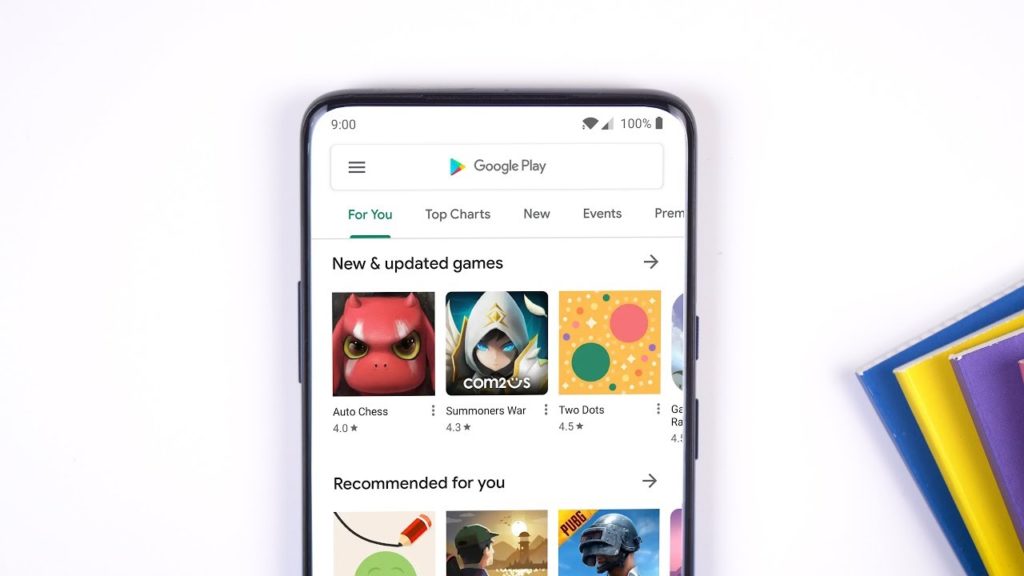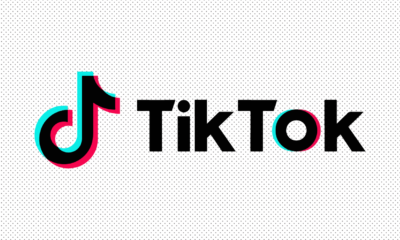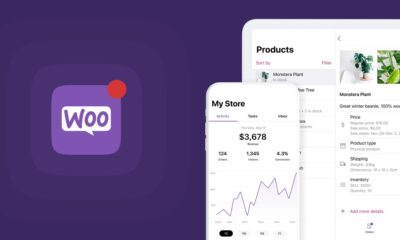Technology
6 Reasons to Use HTML5 for Mobile App Development


Should I go with native or use HTML 5 for mobile app development? This is one of the most commonly asked questions that I receive almost every week.
Honestly, there isn’t one single answer to this question. I mean if we are to assess the capabilities and limitations of each of the platforms, native and HTML5 both come with some compelling capabilities, as well as, some limitations. The final choice will rest on your requirements and with the capabilities of the mobile and web development agencyDubai of your choice.
Here in this blog, I have come up with some reasons which I believe make HTML5 a great platform for mobile app development. Since this blog is about HTML 5, we will escape about native apps for some other time.
Just before we explore the benefits to use HTML 5 for mobile app development, let’s have a brief definition of what Native or HTML5 means, for our non-tech savvy readers and to prevent ambiguities.


Decoding Native vs. HTML5
When we say native app, we are referring to mobile apps that are developed using native technologies of specific operating systems. That’s to say that Java is native technology for Android apps development, whereas, Swift is the native technology for iOS app development. So, when you use the native platform to develop a mobile app for a specific operating system, these are referred to as native apps.
Alternatively, an HTML5 app is one that’s developed using HTML, CSS, and JavaScript. It is important to note that these apps can support offline data along with rich media as well. By using HTML, CSS, and JavaScript, you get added benefit to building a mobile app for any of the desired operating systems (android or iOS).
So, now that you have an idea for what we are referring to when using native apps of HTML5 apps, let’s just jump directly to our main topic that’s; six reasons to use HTML 5 for mobile app development.
The Capabilities of HTML 5 are Constantly Increasing
Back in time, HTML5 was constantly bashed for lack of functionalities, compared to the native applications. Now, while this may still hold to this day, the fact of the matter is that the HTML5 ecosystem is quickly adapting and evolving.
New features and capabilities are being added to the HTML5 ecosystem constantly and that it will certainly come at par with the native technologies in the near future. So, if you thought that HTML5 could only offer basic functionalities for mobile apps, you need to think again.
Also, for the most part, the lack of technologies in the HTML 5 ecosystem is often not due to any lacking in the technology itself, but rather for the lack of support for the technology. Back in 2008 when it was first launched, the only browser that lends support to the technology was Firefox.
Today, while many major browsers do support major features of HTML5, many still lack support for complete functionalities and elements. Moreover, when we talk about websites, HTML5 has already proved its mettle by outperforming native technologies and has the support of some big companies including Adobe and Google.
Cross-Platform Compatibility
One of the best features of HTML5 is its compatibility across various devices. As mentioned earlier, the HTML5 mobile app will work seamlessly on all major mobile operating systems including Android and iOS (even with the Windows or Blackberry Oss).
It is regardless to say that by opting for HTML5 technology for mobile app development, you aren’t just bringing your cost of development down but also offering users a consistent user experience across all platforms, which in today’s date is a necessity for success.
If you are to see it from a pure business perspective, going with HTML5 not only help you to attract more users from multiple platforms, but it also enables you to retain users when they switch from one operating system to another (Android to iOS or another way round).
So, by going with HTML5 mobile applications, you essentially increase your chances to dominate the market by offering users a seamless and consistent user-experience on whatever platform they prefer.
And while, some developers might say that HTML5 apps take longer to develop, in reality when you compare the amount of time required to develop an HTML5 app for all mobile platforms against the time required to develop multiple apps with native technologies, HTML5 still wins the race by a big margin.


Remote Updates
Another added benefit to use HTML5 for mobile app development is that it enables the web development agency to send in automatic updates to users, without bothering them for manual updates.
It works simply like when you update a website, every user gets to see only the latest version of the website, and similarly, once you roll-out an update, only the latest version will be available or download.
And honestly, while few of you might think that it’s a contentious issue and that the other way round is better, in my opinion, this feature has more positive than negatives. For one, the remote updates reap benefits for all parties involved including the business, app Development Company, and users.
Since there will be no multiple versions of the app to support and maintain, it means reduced cost for businesses and reduced time required from developers’ perspective. For users, it simply brings in the peace of mind that they no longer are required to go through the manual update process every time a new update is rolled out.
Of course, then there are some specific scenarios where you may not have access to WiFi for updating to the latest version, thus leaving you in a frustrating and agonizing wait until you get a WiFI connection to update the app. With HTML5 automated remote updates, you won’t have to encounter such frustrating scenarios.


Suited for Hybrid App Development
Hybrid apps have become popular amongst users and developers, alike. The native lookalike hybrid apps offer great trade-off for users and developers, where, it reaps the benefit of ease of development HTML5 apps and high-performance of native apps.
Generally, hybrid apps are developed using multiple web technologies including HTML, CSS, and JavaScript. Once the developer is done writing the apps, it is then wrapped in a native container. Another benefit of hybrid apps is that you only need to develop it once and can be deployed over multiple platforms when required.
Great for Emerging Markets
Developing markets present the most potential markets for mobile apps. Emerging markets such as Africa, Pakistan or India offer businesses an endless opportunity to penetrate and reap benefits of massive subscriptions.
However, unlike many developed markets, the developing markets come with diversified device choices, which may be a nightmare for app developers to go for each kind of device and operating system.
HTML5 is an ideal platform for these markets, as the apps developed using HTML5 technologies area responsive and can be deployed over multiple operating systems, offering a better chance to succeed in diversified emerging markets.
Affordability
HTML5 apps come at a relatively affordable development and maintenance cost as compared to the native apps. For one, it requires one-time coding to be deployed on multiple operating systems, secondly, one single coder can easily develop an HTML 5 mobile app, whereas, you may need multiple developers to develop a native app for each operating system, significantly increasing your cost of development and maintenance.
Summing Up
Honestly, the choice of technology for mobile app development will more often come down to specific needs and circumstances. For some businesses, native apps will remain the preferred choice to meet their unique business needs, whereas, for others, HTML5 opens up a lot more avenues to progress. One thing that we can surely agree upon is the fact that HTML5 brings up a lot more flexibility and cost-effectiveness, which is only going to gain more traction in the near future.
As a leading web development agency Dubai (DG), we encourage businesses to know about the possibilities and potential of each platform, so they are able to make well-informed decisions.
So, next time around when you are looking for the right platform for your mobile app development, make sure you know your options well and weigh them for their functionalities/advantages equally and not just based on general perceptions.


Author Bio:
S.M.Bilal is a specialized Digital Marketer & lead gen specialist at Digital Express. She is obsessed with Marketing and experimenting with new things in life. Combining the unthinkable is also sometimes reflected in her marketing efforts.



 General2 months ago
General2 months agoWhat Is Smart Construction? A Beginner’s Guide





 Technology1 month ago
Technology1 month ago7 Essential TikTok Metrics to Track for Higher TikTok Views in 2025



 Technology1 month ago
Technology1 month agoHow to Send WooCommerce SMS Notifications for Orders

 Model3 weeks ago
Model3 weeks agoTiffany Stratton: Biography, Wiki, Age, WWE Career, Net Worth, Before Fame, Boyfriend



 Technology4 weeks ago
Technology4 weeks agoTop 5 Tips for Using File Uploads in Your WooCommerce Store Efficiently

 Technology3 weeks ago
Technology3 weeks agoWhy Airlines Are Using Virtual Reality Services for Pilot Training



 General4 weeks ago
General4 weeks agoThe Hidden Costs of a DUI & How a Lawyer Can Help You Avoid Them





 Technology3 weeks ago
Technology3 weeks agoExploring TikTok AI: My Experience Making a Video With Only Artificial Intelligence




You must be logged in to post a comment Login